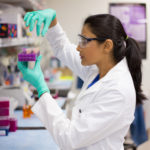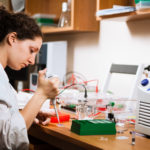
A good mood helps Covid-19 vaccines work better
mRNA vaccines, like Covid-19 vaccines, work better if patients are in a good mood, according to new research by Cardiff University. A new study has uncovered how our psychological state can impact the antibody responses to two doses of the SARS-CoV-2 mRNA vaccination. The study observed that greater positive mood and fewer depressive symptoms were … Continue reading A good mood helps Covid-19 vaccines work better

New AI powered tool could enhance traumatic brain injury investigations in forensics and law enforcement
A new tool to aid forensic investigations of traumatic brain injuries (TBI) has been developed by a team of researchers in collaboration with practitioners from law enforcement, healthcare and industry. Cardiff University says the advanced physics based AI driven technology introduces a mechanics informed machine learning framework to help police and forensic teams accurately predict … Continue reading New AI powered tool could enhance traumatic brain injury investigations in forensics and law enforcement

Autistic women face barriers to safe and supportive maternity care
Childbirth is often described as one of life’s most profound experiences, but for many, it can be fraught with anxiety, pain and trauma. Autism is a lifelong neurotype, which affects around 3% of people. It is linked to differences in communication and sensory processing. Women have historically been under diagnosed with autism, diagnosed at an … Continue reading Autistic women face barriers to safe and supportive maternity care

Bacteria triggers type 1 diabetes
Bacterial infections could be the trigger for type 1 diabetes, according to new research by Cardiff University. For the first time, scientists have found that proteins from bacteria can trigger the immune system to attack insulin producing cells, leading to the development of type 1 diabetes. The new research showed that killer T-cells, a type … Continue reading Bacteria triggers type 1 diabetes

New user friendly technology will revolutionise the rapid diagnosis of TB
A team of researchers from Cardiff and Aberystwyth Universities have been awarded funding of nearly £1.2m by UKRI to develop a novel point of care mycobacterium tuberculosis detector for humans and animals capable of delivering a result within one hour. Cardiff University says the technology will be completely transformative in the rapid diagnosis of TB … Continue reading New user friendly technology will revolutionise the rapid diagnosis of TB

How WhatsApp can help with prostate cancer detection and diagnosis
Cardiff University researchers are examining how the use of WhatsApp can engage Black men in Butetown and Grangetown with prostate cancer risk information and increase prostate cancer awareness. New research funded by Cancer Research UK will fund a collaborative project at Cardiff University to examine the effectiveness of using WhatsApp as a tool for sharing … Continue reading How WhatsApp can help with prostate cancer detection and diagnosis

Increased risk of bipolar and major depression before menopause
In a study of 128,294 women from the UK, a team from Cardiff University’s School of Medicine and Bipolar UK investigated whether perimenopause, the years surrounding the final menstrual period, is associated with an increased risk of developing psychiatric disorders for the first time. The study was inspired by the firsthand experiences of women that … Continue reading Increased risk of bipolar and major depression before menopause

Psoriasis drug shows promise for treating childhood diabetes
A drug that is currently used for the treatment of psoriasis has been found to be effective in treating the early stages of type 1 diabetes in children and adolescents according to a new clinical trial led by Cardiff University with the assistance of Swansea Trials Unit (STU) and the Diabetes Research Group Laboratory at … Continue reading Psoriasis drug shows promise for treating childhood diabetes

Are water births safe?
New research led by Cardiff University confirms that for women with an uncomplicated pregnancy, having a water birth is as safe as leaving the water before birth. Cardiff University says researchers looked at the birth experiences of over eighty seven thousand women with an uncomplicated pregnancy who used water immersion during labour for comfort and … Continue reading Are water births safe?

How beeswax could help families in warzones
Beeswax and local herbs could be crucial in helping families living in conflict zones store food, according to scientists from Cardiff University and Kharkiv Polytechnic Institute of National Technical University, Ukraine. Professor Les Baillie from Cardiff University’s School of Pharmacy and Pharmaceutical Sciences has worked with Dr Yudina Yuliia of the Kharkiv Polytechnic Institute of … Continue reading How beeswax could help families in warzones








